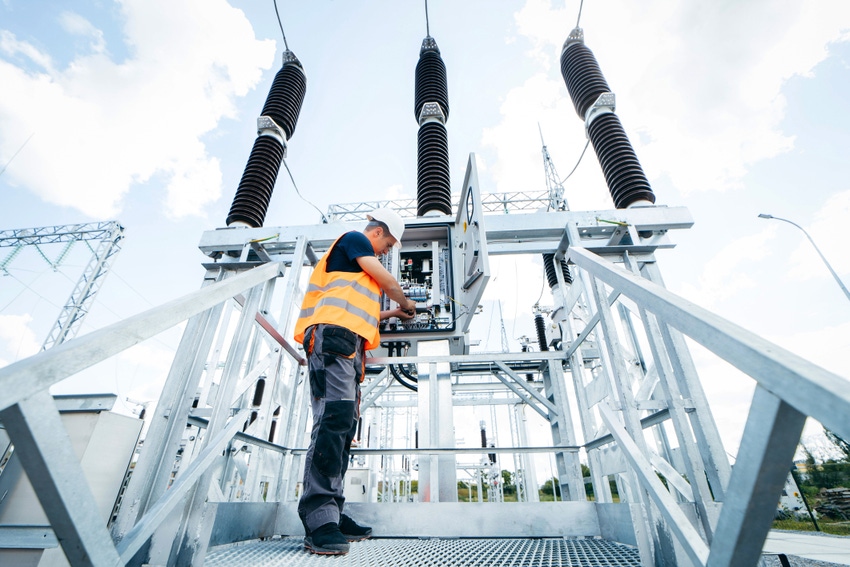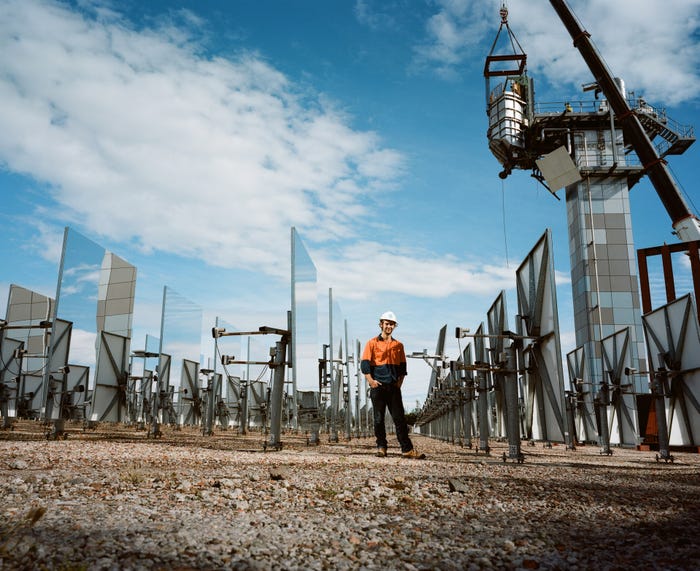5 Ways Energy Utilities Can Boost Their Recruitment Efforts—and Why Engineers Should Consider These Job Opportunities
Utilities offer engineers a wealth of career opportunities—it’s time for this sector to take charge in recruitment.

At a Glance
- Utilities play key roles in the future of energy, giving engineers the chance to make a difference
- This sector offers engineers both job stability and challenging work
It’s no secret that utilities have faced a historically tight labor market over the last few years. Even after the sector added over 11,000 new jobs in 2022, its unemployment rate remains lower than the national average—signs that there may not be enough new talent to sate the skyrocketing demand for skilled workers.
This situation is unlikely to change soon: reaching the U.S.’s target of net-zero emissions by 2050 will require the sector to hire thousands of engineers and other workers in the design and construction of new renewable energy projects, and some companies are already struggling to fill such jobs.
To successfully recruit engineers amid these headwinds, energy utilities will have to revamp an approach that has been stagnant for decades.
Here are five strategies they can deploy to get started to attract engineers.
Refresh the Messaging
When I started my career, I was the only electrical engineer from my university who pursued a utility consulting role. Nobody was doing it because it didn’t seem exciting.
Fast forward 20 years, and that perception hasn’t changed much. Utilities are far from being the Googles and Facebooks of the world. There are no craft beers on tap or bean bag chairs to scrum in. Utilities’ recruitment messaging essentially amounts to, “Hey, we’re stable. We’ll be around for decades.”
Most significantly, they’re not seen as innovative, disruptive, or transformative—even though that’s far from the truth. Utilities are actually shaping the future of this country in real time, dictating how people conduct business or recharge their electric vehicles (EVs), for example.
The industry should take pains to highlight their role in these exciting projects, be it the construction of solar farms or the development of a resilient energy grid that can withstand natural disasters. These are projects that can be just as exhilarating—and perhaps more rewarding—than writing code, scripts, and algorithms, especially for a generation that has shown great interest in sustainability.

Sylvain Sonnet/The Image Bank via Getty Images
Emphasize Variety and Flexibility for Engineers
The overall attitude of the workforce toward staying with one employer for years is shifting. Professionals are no longer looking to work with the same company for 50 years and retire—the median tenure of workers aged 25-34 is around three years, whereas the median tenure is 4.7 years for those aged 35 to 44, and 6.9 years for those aged 45-54.
Factor in stiff competition in the labor market from consulting firms and independent developers of renewable energy production facilities, and it’s no wonder utilities struggle to entice. After all, consulting firms often pay their employees to fly halfway around the world, while independent developers simply build projects faster.
To stay competitive, energy utilities would do well to highlight the numerous positions one can hold in the industry. For example, an engineer could easily work in an office engineering position, in the field with the construction crews, as part of the regulatory or customer-facing team, or plan and monitor both the real-time and future state of the grid. That’s not to mention the roles in the project management groups of a utility. Engineers could feasibly switch roles every few years and still have the safety net of working at the same utility—that’s an unsung positive.
Highlight the Sector’s Unique Benefits
Working for a utility company has its perks. For one, they typically offer competitive wages and robust insurance and retirement plans, which have become increasingly rare in today’s job market. And because energy utilities are unlikely to fold, long-time employees will be able to get the most from their tenure.
Energy utilities are also more flexible than most people think—the bulk of the non-maintenance work can be performed remotely. That means that most utilities should, at the very least, be offering a hybrid work schedule to meet employee expectations. In one recent survey, for instance, 65% of employee respondents reported wanting to work remotely full-time. Why not meet them in the middle?
Improve Early Outreach
Energy utilities should think creatively and embrace opportunities beyond career fairs. They can create and engage a pipeline of professionals far more successfully by sending project leads to speak about their profession or demonstrate how certain equipment is used in-person at schools. They can even sponsor college classes that have a related engineering component.
Utilities should also consider crafting apprenticeship and internship opportunities for high school and college students. While these options may require greater financial investment, they can pay off in the long run.
Know When to Bring in Third-Party Talent
Supply/demand bottlenecks can impact employee motivation and morale. Energy utilities that can’t meet demand often force their employees to work long hours, which can lead to employee burnout—and ultimately, attrition—over the long-term. A consulting partner who can provide flexible solutions to the utility when those additional needs arise can help reduce the demand for long hours from internal staff.
Giving promising new hires the opportunity to work on the most creative, engaging projects that stretch their minds and skillsets is also an excellent retention strategy. Utilities companies can lean on consulting firms to handle other projects so they can keep this new talent engaged. Their capabilities could include building models based on survey data, full project design and construction, tracking of supplier performance analytics, and managing bill processing.

Michael Hall/The Image Bank via Getty Images
Get Energized
In today’s dynamic job market, energy utilities must evolve to attract the next generation of engineers and other professionals. It won’t be easy. But by incorporating these rules of thumb into their recruitment strategies, business leaders can navigate this tight labor market and reap the benefits of continued industry growth.
About the Author(s)
You May Also Like





